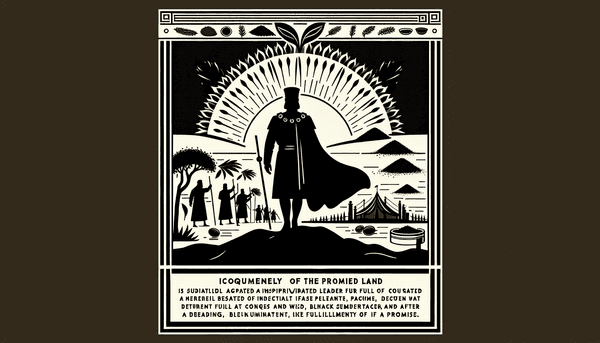The Power of Prayer in the Vechiul Testament
In the sacred narratives of the Vechiul Testament, prayer emerges as a powerful force, a means through which individuals communicate with the Divine. Avraam's intercession for Sodoma and Gomora demonstrates his deep compassion and the boldness with which he approached God, as seen in Genesis 18:22-33. Similarly, Moise's fervent prayers on behalf of the Israelites, as recorded in Exodus 32:11-14, reflect his unwavering commitment to his people and his trust in God's mercy. These moments of prayer are more than mere petitions; they embody an act of worship and submission, a recognition of God's sovereignty in the face of human frailty. King Solomon's dedication of the temple, as found in 1 Kings 8:22-53, and David's heartfelt psalms, such as Psalm 5, further illustrate the significance of prayer as a sacred offering, an outpouring of the soul that seeks to align with God's will. The humility of King Ahab, who repented before God, leading to a divine reprieve from judgment (1 Kings 21:27-29), shows the transformative potential of prayer. In times of need, individuals like Elijah turned to prayer, beseeching God for rain (1 Kings 18:42-45), while Nehemiah sought divine guidance before embarking on the monumental task of rebuilding Jerusalem's walls (Nehemiah 1:4-11). Even from the belly of a fish, Jonah's prayer (Jonah 2:1-10) was heard, leading to his deliverance and the fulfillment of his prophetic mission. These prayers, rooted in faith, remind us that 'The LORD is near to all who call on him, to all who call on him in truth.' (Psalm 145:18).
The Timeless Significance of the Bible
The enduring nature of the Bible's wisdom is evident in its capacity to instruct, rebuke, correct, and train in righteousness, as expressed in 2 Timothy 3:16-17. This divine Word, ingrained with eternal truths, transcends generations, providing spiritual nourishment and moral guidance. For instance, the Bible offers profound insights into the human condition, as encapsulated in Hebrews 4:12, which describes the Word of God as living and active, discerning the thoughts and intentions of the heart. The character of God is unveiled through passages like Exodus 34:6-7, where His compassionate and gracious nature is revealed. Moreover, the pathway to salvation is clearly laid out in Romans 10:9-10, which speaks to the transformative power of confessing and believing in Jesus Christ. The Bible's principles continue to empower individuals to live out virtues such as love and compassion (1 Corinthians 13), seek justice and mercy (Micah 6:8), and marry faith with action (James 2:17), demonstrating that 'Jesus Christ is the same yesterday and today and forever.' (Hebrews 13:8).
Handling Poverty and Wealth from a Biblical Perspective
The Vechiul Testament offers profound wisdom on the subjects of poverty and wealth, addressing the complexities of material possessions and their impact on the human soul. It warns of the dangers inherent in the love of money, which can lead to an endless cycle of dissatisfaction, as stated in Ecclesiastes 5:10. Jesus, too, cautioned against the accumulation of earthly treasures, advocating instead for the pursuit of eternal riches (Matthew 6:19-20). The Bible encourages a life of contentment and faith, emphasizing the importance of seeking God's kingdom and righteousness as the ultimate priority, with the assurance that our needs will be met (Matthew 6:33). Paradoxically, the poor are encouraged to take pride in their exalted spiritual status (James 1:9-10), while the rich are reminded of the fleeting nature of their wealth. The Bible does not neglect the practical aspects of poverty; it calls for compassion and generosity, urging believers to share with those in need (Proverbs 22:9) and to be advocates for the oppressed (Proverbs 31:8-9). The juxtaposition of spiritual and material wealth challenges us to reevaluate our priorities and to find fulfillment in the things that bear eternal significance.
Overcoming Deficiency through Faith and Wisdom
In moments of deficiency, whether spiritual or material, the Vechiul Testament counsels a reliance on God's provision and wisdom. The teachings of Jesus, as found in Matthew 6:25-26, encourage believers to trust in the Father's care for all creation, promising that our basic needs will not be overlooked. This trust is complemented by a call to seek divine wisdom, as underscored in Proverbs 3:13-18, where wisdom is extolled as more precious than jewels. Discernment and knowledge are held in high regard, with the book of Proverbs repeatedly emphasizing their value for a life well-lived (Proverbs 18:15, 4:7). In times of material need, the early Christian community serves as an example of mutual support and sharing, as depicted in Acts 2:44-45. Meanwhile, the New Testament encourages diligence and personal responsibility, with passages such as 2 Thessalonians 3:10 exhorting believers to work and earn their own living. Financial prudence and stewardship are also advocated, with Jesus himself advising careful planning and consideration of resources (Luke 14:28-30). In essence, the believer is called to balance faith in God's provision with practical wisdom and responsible living.
Conclusion
As we traverse the complexities of life, the Vechiul Testament stands as a beacon of hope and guidance. Through its portrayal of prayer, it invites us to engage in meaningful dialogue with God, seeking His will and experiencing His transformative power. The Bible's teachings on wealth and poverty challenge us to consider the true value of our earthly pursuits and to prioritize spiritual riches over material gain. As we seek to navigate our deficiencies, the Scriptures offer a wellspring of wisdom, encouraging reliance on God's provision while advocating for responsibility and wise stewardship. In embracing these timeless principles, we find the keys to a life of fulfillment and purpose, anchored in the eternal truths of God's Word.






